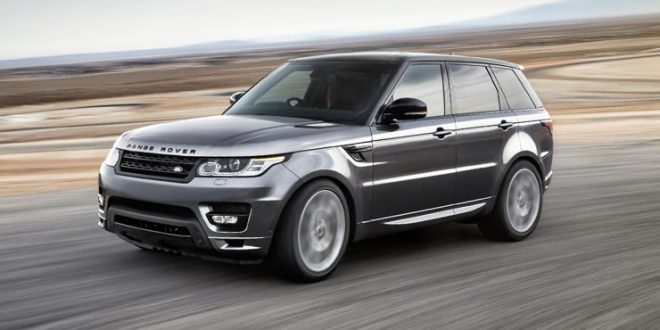The Range Rover has long been an icon of luxury and rugged capability, and much of its reputation is owed to the power and versatility of its engine options. Range Rover engines are designed to deliver exceptional performance across diverse terrains while providing a smooth and sophisticated driving experience. Whether you’re looking for robust towing capacity, powerful off-roading capabilities, or efficient daily driving, the Range Rover offers a range of engine options to meet a variety of needs.
Range Rover Engine Options
Land Rover offers a selection of engines across the Range Rover lineup, including gasoline, diesel, hybrid, and electric options. Each engine type brings unique benefits, allowing buyers to tailor their vehicle to their driving habits and lifestyle preferences.
- Gasoline Engines: Known for their power and smooth performance, Range Rover’s gasoline engines deliver robust acceleration and high horsepower. They are ideal for drivers who prioritize speed and smooth highway cruising. Popular options include the 3.0-liter inline-six and the 5.0-liter supercharged V8, both offering impressive horsepower and torque.
- Diesel Engines: Diesel engines have long been a favorite for their efficiency and torque, making them well-suited for towing and off-road driving. Range Rover’s diesel engines, like the 3.0-liter V6, are both fuel-efficient and powerful, offering high torque at lower RPMs for easy maneuvering over challenging terrains.
- Hybrid and Electric Engines: As part of its commitment to sustainability, Land Rover has expanded its lineup to include hybrid and electric engines. The Range Rover PHEV (Plug-In Hybrid Electric Vehicle) combines a gasoline engine with an electric motor, delivering the performance Range Rover is known for while reducing fuel consumption and emissions. For fully electric enthusiasts, the all-electric Range Rover model will also be available soon, combining the luxury of a Range Rover with zero emissions.
Key Features of Range Rover Engines
Range Rover engines are designed with several key features that enhance both performance and driving experience. Here’s a closer look at some of these standout characteristics:
- Turbocharging and Supercharging: Many Range Rover engines are equipped with turbochargers or superchargers to boost power output. Turbocharging forces more air into the engine, leading to increased power and torque, while supercharging provides immediate power at low RPMs. These technologies give Range Rover engines the ability to handle heavy loads and steep inclines with ease.
- Mild Hybrid Technology: The newer Range Rover engines incorporate mild hybrid technology, which uses a small electric motor to assist the engine during acceleration and capture energy during braking. This leads to improved fuel efficiency and a smoother, more responsive driving experience.
- Advanced Transmission Systems: Range Rover’s engines are paired with advanced 8-speed automatic transmissions, which are engineered to deliver seamless gear shifts and optimized power distribution. The transmission adapts to driving conditions and provides quick response times, whether you’re cruising on the highway or navigating rugged terrain.
- Off-Road Capabilities: Range Rover engines are built for versatility, with special design considerations to support off-road driving. The engines are configured to deliver high torque at lower RPMs, which is essential for tackling steep slopes, rocky surfaces, and other challenging landscapes. The combination of a powerful engine, advanced suspension, and drivetrain gives Range Rovers their legendary off-road capability.
Performance Specs and Towing Capacity
The performance specs of Range Rover engines vary by model and engine type, but all are built to deliver impressive power and capability:
- Horsepower and Torque: Range Rover engines range from around 355 horsepower in the inline-six to over 500 horsepower in the supercharged V8, with torque figures designed to support both acceleration and towing.
- Towing Capacity: Depending on the engine choice, Range Rovers are equipped to tow up to 7,716 pounds, making them excellent choices for hauling trailers, boats, and other large loads. Diesel and V8 engines, in particular, offer high torque for greater towing capability.
- Fuel Efficiency: Fuel economy varies across the engine lineup, with the diesel and hybrid options providing the most efficient performance. The plug-in hybrid model, for example, delivers better fuel economy by combining electric power with gasoline for reduced fuel consumption on longer trips.
Choosing the Right Range Rover Engine
Selecting the right Range Rover engine depends on a few key factors: intended use, driving habits, and environmental considerations.
- Daily Commuting and City Driving: For drivers who primarily use their Range Rover for city commuting or daily driving, a gasoline or hybrid engine is a great choice. These engines provide smooth performance and efficient fuel use, especially in hybrid models, which can switch to electric mode in slow-moving traffic.
- Long-Distance Travel and Highway Driving: The V8 engine or turbocharged gasoline engines offer power and acceleration for highway driving and long-distance travel, with quick response times and high horsepower.
- Off-Road and Towing Needs: If you plan to use your Range Rover for off-roading or towing, a diesel engine or V8 will offer the torque needed for these tasks. Diesel engines are especially effective for towing heavy loads and navigating rough terrains due to their high torque output at low RPMs.
Maintenance and Longevity of Range Rover Engines
Proper maintenance can ensure a Range Rover engine performs optimally for years to come. Here are some tips to maintain engine longevity:
- Regular Oil Changes: Oil changes are essential for engine health, as they prevent buildup and wear. Follow the manufacturer’s recommendations for oil type and change intervals to keep your engine in top condition.
- Use Quality Fuel: High-quality fuel supports engine efficiency and performance. For supercharged engines, using the recommended octane rating can prevent knocking and enhance performance.
- Periodic Inspections: Regular engine inspections can detect issues early, ensuring your Range Rover engine operates smoothly. Authorized Land Rover service centers can provide diagnostics and address specific engine requirements.
- Battery and Hybrid System Maintenance: For hybrid models, periodic checks on the battery and electric motor system are important for sustaining battery health and ensuring that the hybrid system is functioning efficiently.
Final Thoughts on Range Rover Engines
Range Rover engines represent the perfect blend of luxury, power, and innovation. With various engine options, from high-torque diesel to eco-friendly hybrid and electric choices, there’s a Range Rover engine tailored for every driver’s lifestyle and performance needs. By combining robust power with advanced technology, Range Rover engines ensure an exceptional driving experience—whether you’re tackling rugged landscapes or enjoying a smooth city ride.
 Diverse Perspectives: Insights & Stories Exploring Ideas, Sharing Knowledge
Diverse Perspectives: Insights & Stories Exploring Ideas, Sharing Knowledge





